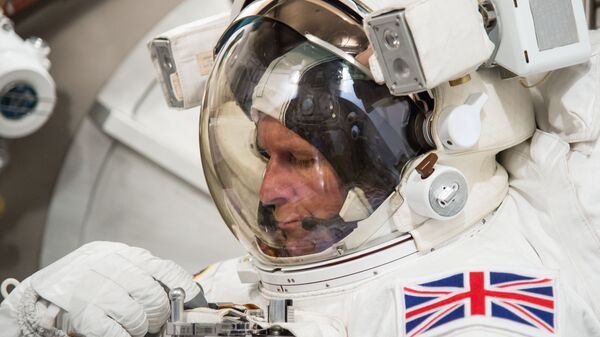The UK is about to kick-start initiatives that will see it develop its first space program, which will run alongside the European Space Agency (ESA) and sometime in the near future, could even end up being comparable to NASA.
UK needs a national space programme — News from Parliament — UK Parliament https://t.co/eTFmPHKE84 via @UKParliament
— Sci & Tech Committee (@CommonsSTC) June 15, 2016
Following Tim Peake's time on board the ISS as part of the UK Space Agency's "Principia mission," members of the UK Science and Technology Select Committee are keen to see steps taken towards establishing Britain's own national space program, independent of the European Space Agency (ESA). They have written a report on what should be done if the UK is to compete with the ESA and even, NASA.
Sokol spacesuit leak check today – one step closer to home… https://t.co/5pl0B2xuQU pic.twitter.com/n9ZkFtKf6E
— Tim Peake (@astro_timpeake) June 9, 2016
Human space exploration, according to the report, has advanced the frontiers of science, yet it has also provided a new perspective on humanity's place in the universe, fueling scientific curiosity which will inspire generations to come. While such activities may seem remote from everyday life, they have played an integral role in the development of space technologies, many of which we now rely on. These include global positioning systems which form the backbone of the emergency systems we use, while Earth observation satellites allow us to forecast the weather and understand our climate with increasing accuracy.
MPs said that they hoped the report would serve as a "call to action" and that this would encourage further scientific curiosity which would ultimately take the UK to new frontiers.
"We ask the Government to outline its plans to ensure that the legacy of the Principia mission continues to raise public awareness of the UK's leading role in the global space sector, while also inspiring the next generation of scientists and engineers, long after Major Peake returns to Earth," the report stated.
The Government is currently looking at locations for where a spaceport can be built. Several sites have been assessed but no final decision has been made.
.@astro_timpeake lands in 3 days! Follow #ScienceIsGREAT to celebrate UK Space during the final days of #Principia pic.twitter.com/olPDC097f0
— UKScience&Innovation (@UKSINet) June 15, 2016
Committee chair Nicola Blackwood MP, said that the UK needs to have a solid plan of action and a bold ambition.
"The Government's technical requirements for the spaceport have focused on establishing a horizontal launch capacity for sub-orbital flights, without a vertical launch capacity, these narrow parameters risk limiting the use, and value, of the spaceport to the space and satellite industry. The Government must urgently set out the rationale, and evidence, for its spaceport proposals," Blackwood said.
According to the Government, a spaceport will provide a focus for regional and international investment for growth while also establishing the UK as a leader in the rapidly-expanding space market.


